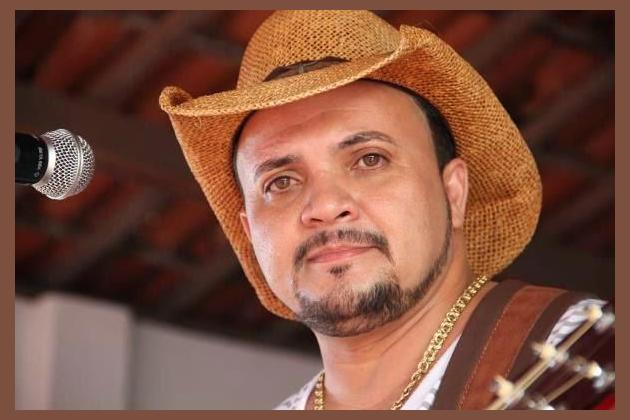 Zé Filho
Zé Filho
Zé Filho: The Voice of the Margin and the Controversies That Sparked His Legacy
In the annals of Brazilian popular music, Zé Filho stands as a towering figure whose inimitable vocals and poignant lyrics resonated with the marginalized and ignited a firestorm of controversy.
Early Life and Musical Beginnings
Born in the impoverished neighborhood of Santo Amaro in Salvador, Bahia, Zé Filho's upbringing was marked by hardship and adversity. Yet, amidst the challenges, his musical talent shone brightly. From a young age, he immersed himself in the vibrant rhythms of his hometown, absorbing the influences of samba, bossa nova, and forro.
In 1965, Zé Filho formed his first band, Os Cariocas do Samba. The group's performances at local dance halls and bars quickly gained a devoted following, but it wasn't until the release of his debut album, "Meu Ponto Fraco," in 1971, that his star truly ascended.
"Meu Ponto Fraco": A Cultural Phenomenon
The title track of Zé Filho's debut album became an instant sensation, captivating audiences with its raw emotion and heart-wrenching lyrics. "Meu Ponto Fraco" exposed the vulnerabilities of the marginalized, touching upon themes of poverty, heartbreak, and social injustice. The song's success propelled Zé Filho to national fame and solidified his position as a voice for the voiceless.
Controversies and Censorship
Zé Filho's outspoken lyrics and provocative performances often clashed with the prevailing social and political norms. In 1972, his album "Vaca Louca" was banned by the military dictatorship, citing its "subversive" content. Undeterred, Zé Filho continued to perform his music, becoming a symbol of resistance and free expression.
Discography and Legacy
Throughout his career, Zé Filho released a prolific body of work, including over 20 albums. His music transcended genre boundaries, blending traditional Brazilian rhythms with elements of soul, funk, and rock. Notable albums include "Zé Filho ao Vivo" (1973), "De Volta ao Samba" (1978), and "Samba do Poeta" (1990).
Members and Collaborations
Zé Filho's exceptional vocals were complemented by a talented group of musicians who formed the backbone of his band. Key members included drummer Zé Roberto, bassist Aroldo Lima, and guitarist Zé Carlos. Over the years, he also collaborated with renowned artists such as Gilberto Gil, Caetano Veloso, and Maria Bethânia.
Challenges and Triumphs
Despite his success, Zé Filho faced numerous challenges throughout his life. Alcoholism and financial difficulties plagued him at times, but his resilience and determination never wavered. Through his music, he continued to inspire and uplift those who had lost hope.
Zé Filho passed away in 2007, leaving behind a legacy that continues to resonate with generations of Brazilians. His music remains a testament to the power of art to speak truth to power, challenge societal norms, and give voice to the marginalized. His unwavering commitment to social justice and his iconic lyrics have cemented his place in the pantheon of Brazilian popular music.
In the annals of Brazilian popular music, Zé Filho stands as a towering figure whose inimitable vocals and poignant lyrics resonated with the marginalized and ignited a firestorm of controversy.
Early Life and Musical Beginnings
Born in the impoverished neighborhood of Santo Amaro in Salvador, Bahia, Zé Filho's upbringing was marked by hardship and adversity. Yet, amidst the challenges, his musical talent shone brightly. From a young age, he immersed himself in the vibrant rhythms of his hometown, absorbing the influences of samba, bossa nova, and forro.
In 1965, Zé Filho formed his first band, Os Cariocas do Samba. The group's performances at local dance halls and bars quickly gained a devoted following, but it wasn't until the release of his debut album, "Meu Ponto Fraco," in 1971, that his star truly ascended.
"Meu Ponto Fraco": A Cultural Phenomenon
The title track of Zé Filho's debut album became an instant sensation, captivating audiences with its raw emotion and heart-wrenching lyrics. "Meu Ponto Fraco" exposed the vulnerabilities of the marginalized, touching upon themes of poverty, heartbreak, and social injustice. The song's success propelled Zé Filho to national fame and solidified his position as a voice for the voiceless.
Controversies and Censorship
Zé Filho's outspoken lyrics and provocative performances often clashed with the prevailing social and political norms. In 1972, his album "Vaca Louca" was banned by the military dictatorship, citing its "subversive" content. Undeterred, Zé Filho continued to perform his music, becoming a symbol of resistance and free expression.
Discography and Legacy
Throughout his career, Zé Filho released a prolific body of work, including over 20 albums. His music transcended genre boundaries, blending traditional Brazilian rhythms with elements of soul, funk, and rock. Notable albums include "Zé Filho ao Vivo" (1973), "De Volta ao Samba" (1978), and "Samba do Poeta" (1990).
Members and Collaborations
Zé Filho's exceptional vocals were complemented by a talented group of musicians who formed the backbone of his band. Key members included drummer Zé Roberto, bassist Aroldo Lima, and guitarist Zé Carlos. Over the years, he also collaborated with renowned artists such as Gilberto Gil, Caetano Veloso, and Maria Bethânia.
Challenges and Triumphs
Despite his success, Zé Filho faced numerous challenges throughout his life. Alcoholism and financial difficulties plagued him at times, but his resilience and determination never wavered. Through his music, he continued to inspire and uplift those who had lost hope.
Zé Filho passed away in 2007, leaving behind a legacy that continues to resonate with generations of Brazilians. His music remains a testament to the power of art to speak truth to power, challenge societal norms, and give voice to the marginalized. His unwavering commitment to social justice and his iconic lyrics have cemented his place in the pantheon of Brazilian popular music.